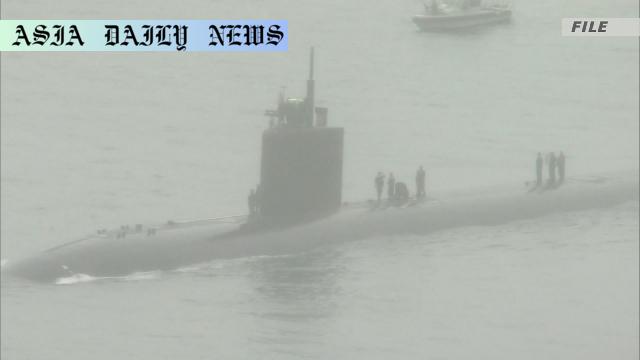North Korea: US submarine port call escalates tensions and provokes military retaliation; defense ties with Moscow intensify.
North Korea criticizes US submarine port call in South Korea.
Pyongyang threatens to respond to perceived regional threats.
North Korea aligns closely with Moscow amidst ongoing global tensions.

Introduction
In a recent development that is reverberating across the geopolitical landscape, a nuclear-powered US submarine, the USS Alexandria, has docked at the South Korean port city of Busan. This action has drawn sharp criticism from North Korea, which claims that the move exacerbates regional tensions while undermining its security concerns.
North Korea’s Response
Tuesday’s edition of Rodong Sinmun, the official newspaper of North Korea’s ruling Workers’ Party, carried a statement from their defense ministry spokesperson. The statement lambasted the United States for “openly ignoring” North Korea’s security concerns and framing the submarine’s docking as a deliberate provocation. Pyongyang has announced its intent to deter any perceived threats and “exercise the legitimate right to punish the provokers.”
Testing US Diplomacy
This incident comes at a time when the US-North Korea relationship is already brittle. Observers such as South Korea’s Yonhap News Agency speculate that North Korea might be deliberately testing the US administration under President Trump. While Trump has signaled willingness to reengage with Kim Jong Un, the North Korean leader appears to be pivoting his alliances away from Washington and towards Moscow instead.
Strengthening Ties with Moscow
North Korea’s growing relationship with Russia is a noteworthy development in the unfolding geopolitical struggle. South Korean defense ministry officials claim that Pyongyang has supported Moscow’s controversial invasion of Ukraine with military assistance, including thousands of troops, artillery, and ammunition. In turn, Russia might potentially provide North Korea with critical technology and development support for nuclear-powered submarines and intercontinental ballistic missile capabilities.
Implications for Regional Security
The arrival of the USS Alexandria in South Korea is seen as a signal of Washington’s firm commitment to its ally against threats posed by the North’s missile and nuclear advancements. However, the escalation could further strain stability in the region. As North Korea strengthens military ties with Russia, South Korea and its ally, the US, find themselves under mounting pressure to rethink their current strategies and maintain a balance in the volatile region.
Conclusion
As geopolitical dynamics continue to shift, the situation surrounding North Korea, its growing alliance with Moscow, and its response to US actions is becoming increasingly complex. The port call by the USS Alexandria raises important questions about the future of diplomacy and security in the Asia-Pacific region. Both North Korea and the US must decide whether to pursue confrontation or dialogue in addressing the long-standing tensions.
Commentary
A Complex Geopolitical Climate
The arrival of a nuclear-powered submarine in South Korea and the strong backlash from North Korea highlight the ever-evolving challenges in the region. This move, while perhaps routine for the US, has ignited a passionate response from Pyongyang. Such actions underscore the frailty of trust and dialogue in this geopolitical theater. The tensions between these nations are not new, but every escalation like this adds fuel to a fire that already threatens to burn out of control.
A Shifting Balance of Power
What is particularly striking is North Korea’s growing pivot toward Moscow. The partnership between these two nations could have considerable implications for global security. North Korea, already an isolated state, is leveraging its relationship with Russia for potential military and technological gains. Meanwhile, the United States’ efforts to project strength may inadvertently deepen rifts and push Pyongyang and Moscow closer together.
The Path Forward
In light of these developments, all parties must tread with care. South Korea and its allies must remain steadfast in their defense while also considering avenues for diplomatic outreach. North Korea, too, has a significant role in reducing tensions by choosing dialogue over threats. It is only through mutual understanding and committed diplomacy that there can be hope for a peaceful resolution and stability in the region.


